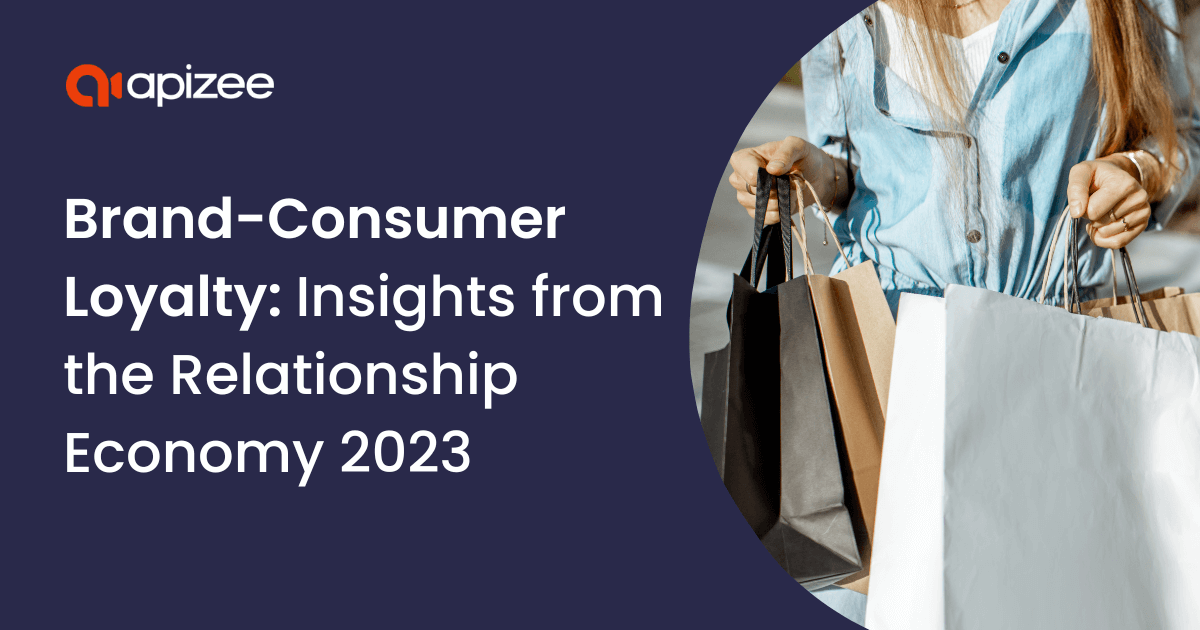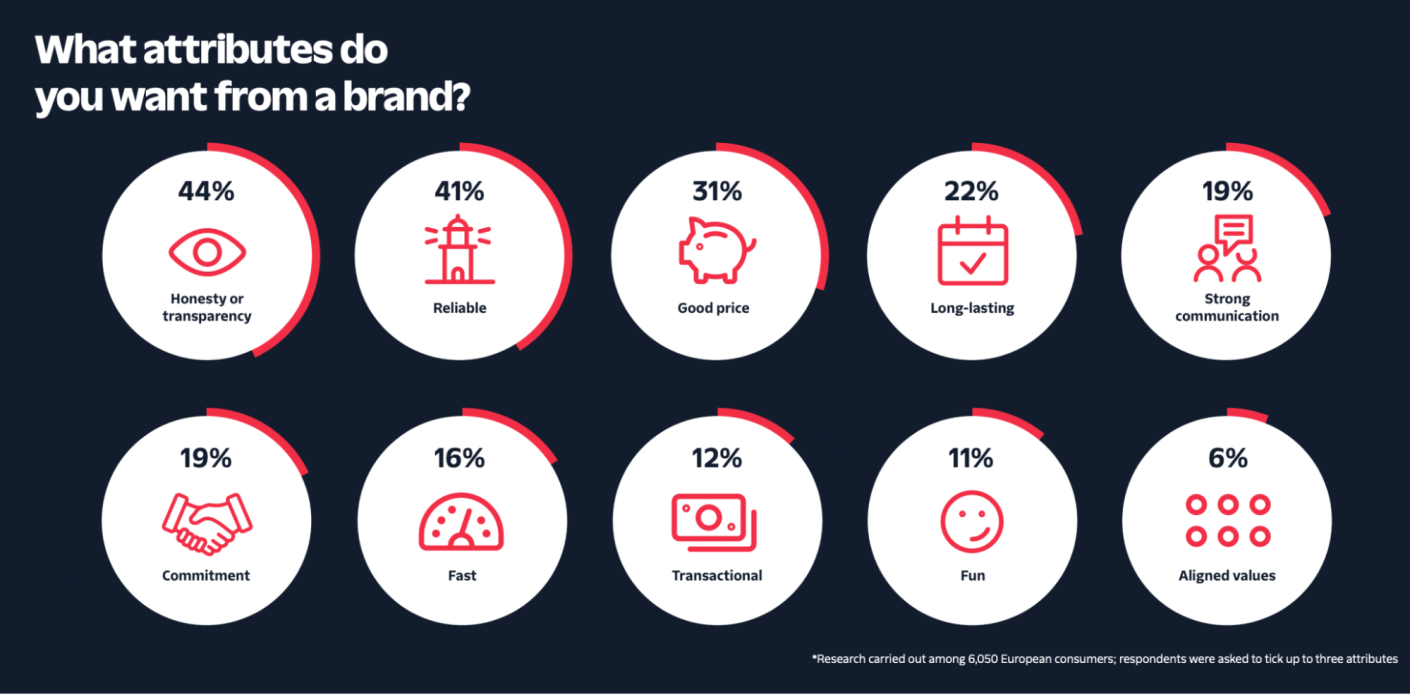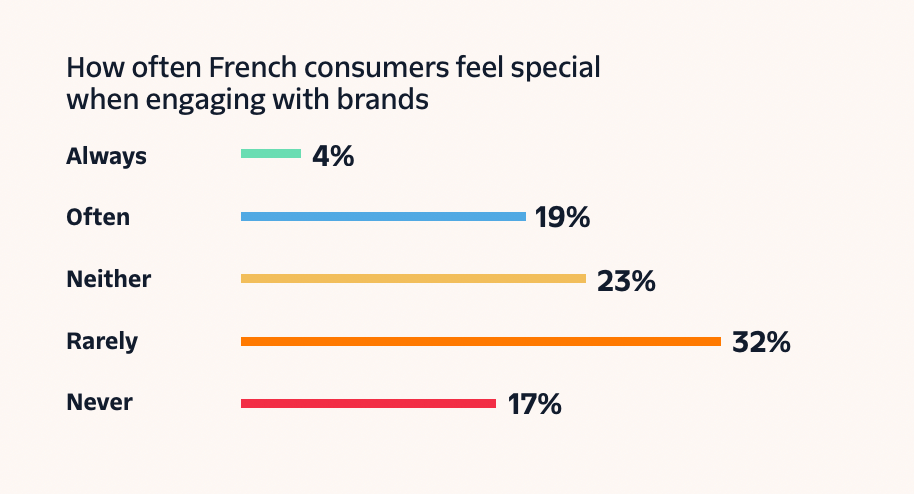The Evolution of Brand-Consumer Loyalty: Insights from Relationship Economy 2023 Report



In the world of modern consumer-brand relationships, the concept of unwavering loyalty, akin to a lifelong marriage, has become a thing of the past. Today, consumers have shed the traditional confines of exclusive allegiance and are exploring an array of brand options to cater to their ever-evolving desires and preferences. It's a non-monogamous customer world where practicality reigns supreme, and consumers are keen to "play the field."
Despite this newfound openness to multiple brand engagements, one core principle remains steadfast—consumers demand honesty and reliability from the brands they engage with. Trustworthiness and consistency have become the touchstones of these relationships, whether they are fleeting or long-lasting.
In this transformative landscape, brands must adapt and embrace this new reality. The focus has shifted from securing lifelong commitments to building meaningful connections by respecting consumers' changing needs and delivering exceptional experiences, even in short-term interactions.
Twilio embarked on a journey to understand this evolving relationship dynamic between consumers and brands. Their extensive study encompassed 6,050 consumers aged 18 and above, along with insights from 1,811 senior marketers across Europe. This comprehensive study spanned regions such as the UK, Germany, France, Spain, the Nordics, and Benelux, offering valuable insights into how companies can forge stronger, more responsive relationships with their customers in this brave new era of the Relationship Economy 2023.
In today's market, brand loyalty has undergone a remarkable shift. Consumers now have the freedom to explore multiple brands at their discretion, often driven by price sensitivity, especially during times of inflation. This makes it crucial for companies to proactively engage customers by offering personalized offers and messaging tailored to their preferences.
Brand loyalty is no longer static. It can change daily, weekly, or yearly, influenced by various factors, including consumer preferences, economic conditions, and brand experiences. However, amidst this fluidity, one thing remains constant: consumers value honesty and reliability above all else. Brands must recognize that even short-term or casual relationships require respect and dedication.
On average, consumers feel emotionally connected to around 4.75 different brands, with no single brand holding exclusive loyalty. Only a small fraction (15%) prioritize emotional connections, while the majority focus on expertise (31%) and efficiency (24%). Longevity (22%) in brand relationships takes a backseat to honesty (43%) and reliability (41%).
In this non-monogamous brand landscape, every interaction counts. Brands must consistently deliver on promises in exciting and unexpected ways to make consumers feel special. Ultimately, success in this dynamic environment hinges on brands demonstrating genuine respect, regardless of the nature of the relationship.

France stands out on the global stage when it comes to consumer expectations and experiences with brands. Honesty, price, and reliability take the top spots as the most valued qualities among French consumers, with price uniquely ranking as high as second in this nation.
Yet, despite these clear expectations, French consumers report feeling less special and valued by brands compared to their global counterparts. An astonishing 49% rarely or never feel special when engaging with brands, while 46% feel the same way about feeling valued. Disappointment also looms large, as 29% frequently or always feel let down by brands. These findings suggest that brands in France may have room for improvement in creating a more emotionally resonant connection with their audience.
It appears that some consumers in France also yearn for greater connection, with 35% of respondents preferring to communicate with brands by calling and speaking to a human. Using video chat for customer support can be a solution in greater connections and engagement with consumers.
Additionally, only 20% of French consumers prioritize 'long-lasting' brand relationships, highlighting an opportunity for brands to redefine what it means to build valuable and enduring connections in this market.
On the brighter side, marketing leaders in France recognize the importance of leveraging first-party data to address these challenges and enhance customer engagement. They see improved customer experiences (56%), more accurate personalization (51%), and transparent data use that builds trust (51%) as the top benefits of utilizing first-party data to establish stronger, more meaningful relationships with their audience.

The Twilio report on the Relationship Economy 2023 illuminates the shifting dynamics of brand-consumer relationships in a non-monogamous world. As consumers explore a wider range of brand options, practicality and respect emerge as the cornerstones of successful brand engagement.
Brands that adapt to this new reality, prioritize trust and consistency, and leverage first-party data and AI will be the ones to thrive in the ever-evolving landscape of modern consumer relationships. In an era where brand loyalty is earned rather than assumed, the future belongs to those brands that embrace change, respect their customers, and deliver exceptional experiences.
Download the report
You learn how to boost customer loyalty with visual engagement talk to us today!
Discover how the LAER model helps customer service teams listen, acknowledge concerns, and resolve complaints with empathy and clarity.
How the LAER Model Helps Customer Service Teams Handle Complaints
20 Feb 2026
Everything You Need to Know About Digital Sovereignty
18 Feb 2026
Learn how the PACE model helps customer service teams deliver faster, clearer support with structured, action-driven conversations.
How the PACE Model Brings Structure to Customer Service Conversations
13 Feb 2026
Interested in our solutions?